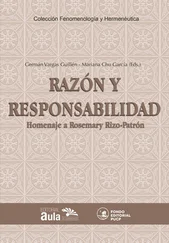Eventually a few people in town wrote me: a friend of a friend who wintered in Marfa asked if I wanted to get a drink; another resident, a novelist I’d met briefly before, asked if I wanted to go and see the Judd; I was invited, through Michael, to a party for an artist who was passing through town. I was keeping strange hours; I was working furiously; I was under the weather, having trouble adjusting to the altitude; I’d love to see you sometime in the coming weeks — I paid little attention to what excuses I deployed as I declined. Again I would find myself standing razor in hand as the sun set, and again I would decide not to shave, wondering how long it would take me to grow my neighbor’s beard, obscure my face. Again I would see a woman watering an ocotillo in her yard at dawn despite the desert cold as I took my last walk of the night, and again she’d fail to see me wave.
And I was at work, but on the wrong thing. Instead of fabricating the author’s epistolary archive, earning my advance, I was writing a poem, a weird meditative lyric in which I was sometimes Whitman, and in which the strangeness of the residency itself was the theme. Having monetized the future of my fiction, I turned my back on it, albeit to compose verse underwritten by a millionaire’s foundation. The poem, like most of my poems, and like the story I’d promised to expand, conflated fact and fiction, and it occurred to me — not for the first time, but with a new force — that part of what I loved about poetry was how the distinction between fiction and nonfiction didn’t obtain, how the correspondence between text and world was less important than the intensities of the poem itself, what possibilities of feeling were opened up in the present tense of reading. I set it in Marfa, but in the extreme heat of the summer: “I am an alien here with a residency, light / alien to me, true hawks starting from the trees / at my footfall on gravel, sun-burnt from reading / Specimen Days on the small porch across / the street from where another poet died / or began dying…”
… They are dead in different ways,
these poets, but I visit them both because
a residency affords me time, not sure where
the money comes from, or what money is,
how you could set it beside a soldier’s bed
then walk out across the moonlit mall in love
with the federal, wake up refreshed and bring
tobacco to those who haven’t received
wounds in the lung or the face. Tonight
I listen to their recordings at once
in separate windows, four lines from “America”
might be recited by an actor, but the noise
of the wax cylinder is real, sounds how I
imagine engines of old boats would, while
“The Door” incorporates distress into the voice,
could be in the room. The former says
he waits for me ahead, but I doubt I’ll arrive
in time …
One morning, which was for me late at night, I’d fallen asleep with the Whitman in my lap when I was awoken by the sound of hammering on the roof above me, the first real interruption of my ghostly rhythm. Then I heard tinny music on a portable radio, voices in Spanish: men were working on the roof. There was no way I could sleep with the noise, so I decided to make coffee and walk a little — for the first time in broad daylight since I’d arrived. I left through the house’s back door and only glanced once behind me at the roof, but I made eye contact with one of the young Mexican men laboring there. I turned and waved and said — my own voice strange to me from disuse — good morning. He called another Mexican man over who said to me in English that they had to do some repairs on the houses over the next couple of days and that he hoped they weren’t making too much noise. I said they weren’t, and to let me know if they needed anything from inside, coffee or water or whatever, and then I somnambulated on — unshowered, unshaven — in the dazzling light, trying to imagine how they imagined me or the other residents in the houses they maintained, residents whose labor could be hard to tell apart from leisure, from loafing, people who kept strange hours if they kept them at all. Did the workers themselves have legal residency here, in what was for them the north, for me the extreme south?
When I returned to the house a couple of hours later the men were still at work, so I put them in the fictional summer of the poem as they hammered above me, turning the day into night:
There are men at work on the roof
when I return, too hot to do by day, wave
and am seen, an awkward exchange
in Spanish, who knows what I said, having
confused the conditional with the imperfect.
Norteño from their radio fills the house
I hope they know isn’t mine: I just write here.
Soon they move on to the house I call his
because Michael, who manages the compound,
rushed him from there to hospital in Midland
or Odessa …
When the workers had moved on to Creeley’s house and I could read — I can only read if it’s quiet, but I can write against noise — I returned, as I did almost every day, to the Civil War passages:
… he feels no need to contain his love
for the material richness of their dying, federal
body from which extremities secede, a pail
beside the bed for that purpose, almost never
mentions race, save to note there are plenty
of black soldiers, clean black women would
make wonderful nurses, while again and again
delivering money to boys with perforated organs:
“unionism,” to die with shining hair
beside fractional currency, part of writing
the greatest poem. Or is the utopian moment
loving the smell of shit and blood, brandy
as it trickles through the wound, politics of pure
sensation? When you die in the patent-office
there’s a pun on expiration, you must enter one
of the immense glass cases filled with scale
models of machines, utensils, curios. Look,
your president will be shot in a theater,
actors will be presidents, the small sums
will grow monstrous as they circulate, measure:
I have come from the future to warn you.
Awake during the day for the first time since I had arrived, I resolved to stay up and reclaim some semblance of my ordinary rhythm. When I felt too tired to write, I streamed Dreyer’s The Passion of Joan of Arc on my computer, Alena’s favorite film; it was like I was Skyping with Falconetti, whom Dreyer had kneel on stone floors in order to make the expressions of pain look real. I resolved to make plans for the next day, to visit Chinati; I looked through the various books about Judd in the house. I was going to shave and reenter time from the heat wave of the poem. Tomorrow I’d begin work on my novel.
Tomorrow I’ll see the Donald Judd
permanent installations in old hangars, but
now it’s tomorrow and I didn’t go, set out hatless
in the early afternoon, got lost and was soon
seeing floaters and spots, so returned to the house,
the interior sea green until my eyes adjusted,
I lay down for a while and dreamt I saw it.
Tonight I’ll shave, have two drinks with a friend
of a friend, but that was last week and I canceled,
claimed altitude had sickened me a little, can
we get back in touch when I’ve adjusted?
Yesterday I saw the Donald Judd in a book
they keep in the house, decided not to go until
I finished a poem I’ve since abandoned
but will eventually pick back up. What I need
is a residency within the residency, then
I could return refreshed to this one, take in Judd
with friends of friends, watch the little spots
of blood bloom on the neck, so I’ll know
Читать дальше










